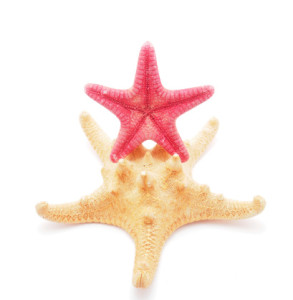
 Once upon a time, businesses hoping to boost their SEO rank could perform any number of tricks, up to and including link spamming. Google cracked down on the practice with the intention of improving the surfing experience for all involved. In a surprising move, Google will soon unveil their new algorithm, Starfish, in which many of these practices will again improve search results for companies who have struggled since the ban.
Once upon a time, businesses hoping to boost their SEO rank could perform any number of tricks, up to and including link spamming. Google cracked down on the practice with the intention of improving the surfing experience for all involved. In a surprising move, Google will soon unveil their new algorithm, Starfish, in which many of these practices will again improve search results for companies who have struggled since the ban.
Liam Hurley, a spokesperson for Google, explains, “It was never our intention to shut out the smaller businesses who have trouble ranking in searches. We’ve listened to your concerns.” We can only guess he’s talking about start-ups and small businesses that purchased links that passed PageRank or participated in keyword stuffing and guest posting campaigns.
**NOTE: This was our April Fool’s Day joke for 2014 – you’ve got to keep blogging and keep investing in awesome inbound experiences to win customers and grow sales!**
Fifth For Trying
We know that the majority of search traffic goes to the first few results on a Search Engine Results Page (SERP), which is something that ecommerce marketers obsess over. To alleviate this obsession and the damaging lack of attention it causes marketers to pay to other aspects of their site, like content, Google’s “Starfish” update reserves the fifth result slot on the SERP just for the site page with the most perfect ON-Page SEO. If you have your title, meta description, and everything else set up right, Google will show your site in the fifth slot regardless of any other factors such as inbound links. Hurley had no comment when we asked what they’d do when two sites had equally good On-Page SEO, responding “How often do you see two websites optimizing their On-Page SEO around the same keyword?”
Naming Starfish
Keeping up with the specifics of Google algorithm updates so you can game the system can be frustrating and is a common reason marketers don’t have time to waste on content creation. Because of this, Google usually names their SEO updates after adorable animals. After all, who’s going to light up torches and grab pitchforks to march on the Googleplex because of a penguin? Penguins are adorable!
This time, the Starfish name was inspired by two different factors. First, Starfish have the cool ability to regenerate arms that are cut off from the main body. Given how painful the Panda and Penguin updates were for marketers, Google decided that growing back a lost limb and returning to their more basic roots for search indexing was an appropriate metaphor. The “fifth for trying” policy also inspired the name, we’re told by sources familiar with the decision, with the five points of the average Starfish inspiring as good a slot as any to randomly rotate for well optimized sites.
No More Need For Content
“Let’s be honest, no one is reading your blog.” Hurley said. “Customers already know everything they need to know about your products and how they can be used. If they were ever going to buy from you, they’d have done it already. Incentivizing marketers to create all this content has made our algorithm really complicated, and it’s not generating any more money for Google.”
Creating content can be very difficult, and it seems that the Starfish update is aimed at alleviating this pain point for ecommerce marketers.
If you’ve been struggling to create quality content for your website that will boost your site in search rankings, this is great news. Here are a few other benefits the new algorithm will provide:
Link Schemes Are Back
Essentially, wherever you can get your links, go for it. Google will no longer count the quality (or lack of quality) of the linking site against you in your Quality Score. Hurley says, “We understand many companies have to link wherever they can, even if that means those links come from unsavory or unrelated sources.” Since relevance is no longer a factor, you’ll see your search rankings begin climbing steadily once more.
Most of the techniques you once used will again be available. In fact, you’ll be able to use link schemes in conjunction with two other banned tactics.
Keyword Stuffing Is Back
“People weren’t sure how to find things on Google if they couldn’t use keywords. Starfish will address this issue,” Hurley said in the article released by Google. For that reason, the internet giant says they’ll again rank pages according to the number of keywords included in the content. Prepare to ramp up your article marketing campaigns once more, as these can be used for two purposes yet again: link spamming and keyword stuffing. Who doesn’t miss article marketing?
Guest Blogging Is Back
Well, in a way, guest blogging never went away. However, those who sought chances to spread links far and wide on any blog they could, relevant or not, will find this news to be fantastic. You can once again email every blog you can find with requests to provide quality, original content in exchange for dofollow links. As Hurley says, “We felt many businesses lost the chance to reach a wider audience when guest blogging was essentially attacked by the Hummingbird algorithm. We want to give people that chance again to reach more potential customers.”
Fewer Crackdowns on Fluff
Finally, Hurley says Google realizes fluff just happens sometimes. “We don’t want to penalize anyone for a particular writing style. Sure, we hope the writing will be of good quality, but not every company can afford a copywriter. For that reason, many of the pages once flagged for poor quality will again be allowed into the results rankings.” That also means more content will flood the web in the coming weeks.
What do you think about the coming changes? Have you missed some of the tactics you once used for marketing? Has Google totally lost the plot? We’d love to hear your thoughts in the comments!
By: Morgan Jacobson